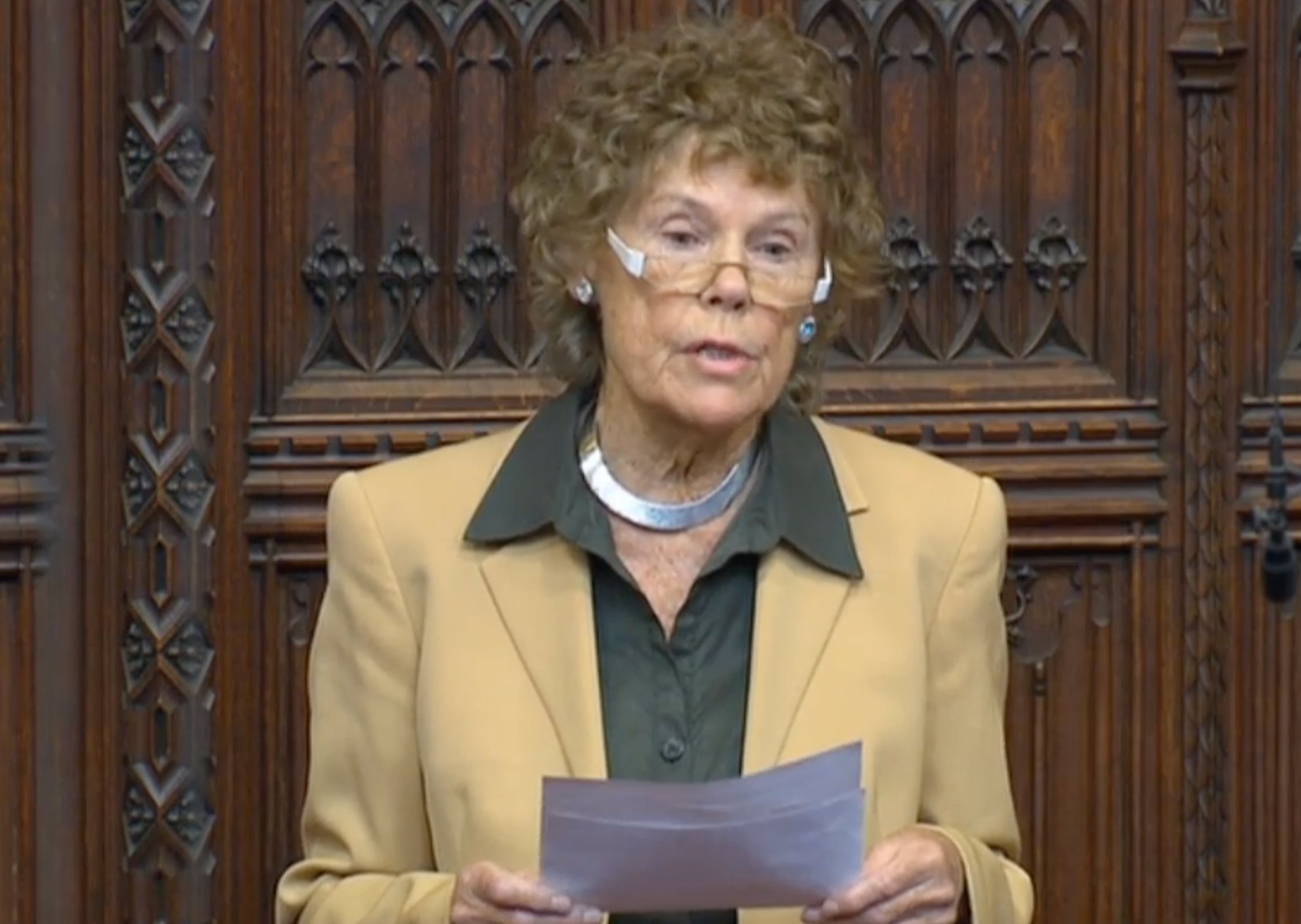Brexiteer Kate Hoey claims Ireland used ‘threat of IRA bombs’ to get Brexit deal
Former Labour MP calls on government to suspend Northern Ireland protocal in Brexit deal

A leading Brexiteer has accused the Irish government of using "the threat of IRA bombs" to impose the Brexit agreement on Northern Ireland.
Former Labour MP Kate Hoey accused former Taoiseach Leo Varadkar of using violence as "political leverage" to get his way in Brexit negotiations.
The baroness's comments caused outrage in the House of Lords and attracted shouts of "shame" from peers across the house.
"There are already serious societal difficulties in Northern Ireland," she said.
"Every night now across the province there are dozens of mostly peaceful protests with many feeling ignored and betrayed.
"They're not reported of course because they are not violent.
"This direct action is going to increase over the next few months with the worry in many communities there is a feeling that the only way to advance political objectives is with the threat of violence, just like the threat of IRA bombs was unfortunately used by Taoiseach Varadkar as political leverage which led to the Protocol."
When Baroness Hoey finished speaking, another peer could be heart to shout: "It's all your fault" – an apparent reference to her support for Brexit.
Ms Hoey said the government should recognise that it was "unsustainable for the Protocol to last much longer".
The Northern Ireland protocol is part of the Brexit withdrawal agreement, and was designed to ensure there would be no need for a hard border between the Republic of Ireland and the North.
The UK government's decision to enact a "hard" Brexit leaving both the single market and customs union on top of the EU created a customs and regulatory border with the EU where one did not exist before.
But both the UK and EU were committed to making sure no hard border reemerged on the island if Ireland's land border, as part of their commitment to the peace process and Good Friday Agreement.
So instead, both sides agreed to draw a customs border down the Irish Sea, effectively keeping Northern Ireland in the single market.
But the policy is controversial with some Northern Irish unionists because it maintained economic integration with the Republic at the expense of integration with Great Britain.
Northern Ireland has faced civil unrest and supply problems since the protocol came into effect on 1 January.
Baroness Hoey's comments appear to be a reference to a preference to avoid a hard border because it might be targeted by Irish republican paramilitaries. The UK, EU, and Ireland were all committed to this negotiating objective.
Mr Varadkar had previously said in 2018 that there was “a real risk of a return to violence in Ireland”.
Subscribe to Independent Premium to bookmark this article
Want to bookmark your favourite articles and stories to read or reference later? Start your Independent Premium subscription today.

Join our commenting forum
Join thought-provoking conversations, follow other Independent readers and see their replies